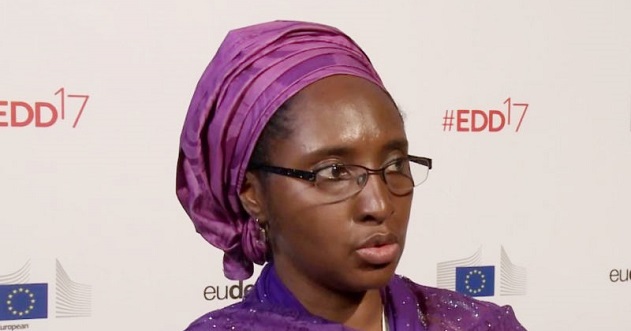Business
HUMAN CAPITAL INDEX: World Bank’s ranking on Nigeria depressing– Finance Minister

The Minister of Finance, Zainab Ahmed, says the recent Human Capital Development Index (HCI) by the World Bank Group, which ranked Nigeria as the sixth worst nation in the world, was disheartening and depressing.
Ahmed said even though the global lender may have ranked the nation low at 44 percent, the Federal Government was not discouraged but rather saw it as a wake-up call.
Recall that Nigeria was ranked 152 out of 157 countries covered in the HCI survey over low health spending and poor educational outcomes. Nigeria and other African nations like Chad, South Sudan, Niger, Mali and Liberia were the worst ranked nations.
“We admit that this pervasive action was due to long years of under-investment in human capital, which we have before now realised and for which we have been addressing.
“Apart from major policy actions, some decisive actions are being taken to address the situation,” Ahmed said on Sunday.
The minister said the Nigerian delegation had met with two rating agencies – Moody’s and Fitch – at the 2018 Annual Meetings of the International Monetary Fund (IMF) and World Bank Group (WBG) in Bali and made presentation on the summary and synopsis of the recent economic and financial developments in Nigeria.
She added that the delegation also presented the facts and figures behind the 2018 budget, noting that it was an opportunity for the rating agencies to be able to objectively evaluate Nigeria’s credit.
Ahmed said she also had bilateral meeting with IMF Managing Director, Christine Lagarde, saying she discussed issues in Nigeria’s economy and assured her that the 2019 general elections would not pose any threat to the nation’s economic prospects.
Read also: Niger Republic abandons Nigerian ports for Ghana, Cotonou
On his part, Minister of Budget and National Planning, Senator Udoma Udo Udoma, said it was important for the nation to improve its budgetary allocation to health and education for the nation to have an improved HCI.
He said that allocation to education moved from N22.5 billion in 2015 to N102.9 billion in 2018, while allocation to health was reviewed from N26.6 billion in 2015 to N86.49 billion in 2018.
Udoma also pointed out that N55.19 billion had been added to the health budget in 2018 through the National Health Act.
Ripples Nigeria reports that Nigeria had appropriated 3.9 percent of her 2018 budget to the health sector and 7.03 percent to the education sector as against 14 percent and 15 – 20 percent recommended by the United Nations Educational, Cultural and Scientific Organization (UNESCO), respectively.
The 2018 IMF/WBG annual meetings, which began on Monday, October 8 in Bali, Indonesia, ended on Sunday, October 14, 2018.
RipplesNigeria… without borders, without fears
Click here to join the Ripples Nigeria WhatsApp group for latest updates.
Join the conversation
Support Ripples Nigeria, hold up solutions journalism
Balanced, fearless journalism driven by data comes at huge financial costs.
As a media platform, we hold leadership accountable and will not trade the right to press freedom and free speech for a piece of cake.
If you like what we do, and are ready to uphold solutions journalism, kindly donate to the Ripples Nigeria cause.
Your support would help to ensure that citizens and institutions continue to have free access to credible and reliable information for societal development.
























